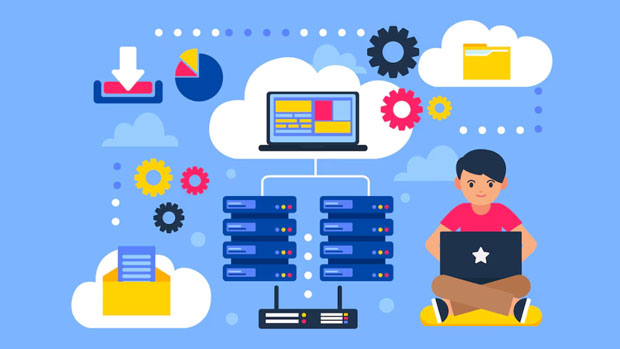In the world of web scraping, proxies play a crucial role in ensuring seamless and uninterrupted data collection. Two main types of proxy pools are commonly used for large-scale web scraping: static residential proxy pools and ip proxy pools. These two categories of proxies each offer distinct features and benefits, but understanding their differences can help you determine which one is better suited for your specific needs. In this article, we will explore the advantages and disadvantages of both static residential proxies and ip proxies, with a focus on their suitability for large-scale web scraping operations. What Are static residential proxy Pools?Static residential proxy pools are networks of proxies that use residential IP addresses assigned by Internet Service Providers (ISPs) to real users. These IPs are associated with physical locations and are typically considered trustworthy by websites, as they resemble regular users browsing the web. static residential proxies are named for the fact that their IP addresses remain consistent for an extended period, providing stability during web scraping tasks.What Are IP Proxy Pools?IP proxy pools, on the other hand, consist of a variety of IP addresses from different sources, including data centers, mobile providers, and residential networks. These proxies are commonly used to mask the real IP address of the scraper, making it appear as though the requests are coming from different locations or devices. The primary advantage of IP proxy pools lies in their speed and scalability, as they can rotate IP addresses frequently to avoid detection and blocks.Comparison of Static Residential Proxy Pools and IP Proxy PoolsTo better understand the suitability of static residential proxy pools and IP proxy pools for large-scale web scraping, let's break down their differences in terms of performance, security, reliability, and cost.1. Performance and SpeedWhen it comes to performance, IP proxy pools often outperform static residential proxies in terms of speed. IP proxies, especially those from data centers, are optimized for fast and efficient data transfer, allowing for quicker requests and responses. This is crucial when scraping large volumes of data at scale, as high-speed proxies ensure that the process does not slow down significantly.On the other hand, static residential proxies, while more reliable in terms of IP consistency, may not be as fast as IP proxies from data centers. Residential IPs are often associated with slower internet speeds, and the geographic distance between the residential IP and the target server can also impact latency.2. Security and AnonymitySecurity and anonymity are critical factors in large-scale web scraping, particularly when dealing with websites that employ anti-bot measures. Static residential proxies offer a higher level of anonymity compared to IP proxy pools. Since residential IPs are associated with real users, websites are less likely to flag requests originating from these IPs as suspicious. As a result, static residential proxies can be more effective at bypassing CAPTCHA tests, IP bans, and other security measures designed to block bots.IP proxy pools, especially those using data center IPs, are more likely to be detected and blocked by websites due to their non-residential nature. Websites can identify data center IPs more easily, as they tend to originate from a small number of known data centers. However, by rotating IP addresses frequently and using advanced anti-detection techniques, IP proxy pools can still achieve a reasonable level of anonymity.3. Reliability and StabilityStatic residential proxies have an advantage when it comes to reliability and stability. The IP addresses in static residential proxy pools remain consistent over time, providing a stable connection for long-term scraping tasks. This is particularly important for projects that require sustained access to the same websites or data sources over extended periods.In contrast, IP proxy pools may experience more frequent IP changes, which can disrupt the scraping process if not properly managed. While frequent IP rotations can help avoid detection, they may also cause issues with session continuity, especially for scraping tasks that require maintaining session data or cookies.4. Cost ConsiderationsCost is an important factor when choosing between static residential proxies and IP proxy pools, especially for large-scale scraping projects. Static residential proxies tend to be more expensive than IP proxy pools, primarily because residential IPs are in high demand and are limited in number. The cost per IP is typically higher for static residential proxies due to the fact that they are sourced from real users, which requires more resources to maintain and manage.IP proxy pools, particularly those using data center IPs, are generally more affordable. Data center proxies are more abundant and can be purchased in bulk at a lower cost, making them a more budget-friendly option for large-scale scraping operations. However, the trade-off is that they may not provide the same level of reliability and anonymity as static residential proxies.Which Proxy Pool Is Better for Large-Scale Web Scraping?For large-scale web scraping projects, the decision between static residential proxy pools and IP proxy pools depends largely on the specific requirements of the scraping operation.- If speed and scalability are your top priorities, IP proxy pools are the better choice. They offer faster performance, more flexibility in terms of IP rotation, and lower costs, making them ideal for projects that require scraping large volumes of data quickly and efficiently.- If security, reliability, and long-term stability are more important, static residential proxies are the way to go. They provide a higher level of anonymity and are less likely to be blocked or flagged by websites. This makes them ideal for scraping websites that have robust anti-bot protections or when the project requires sustained access to the same sites over an extended period.Both static residential proxy pools and IP proxy pools have their strengths and weaknesses, and the choice between the two depends on your specific needs for large-scale web scraping. For high-speed performance and cost-effectiveness, IP proxy pools are the better option, while for enhanced security and reliability, static residential proxies are more suitable. By understanding the differences between these two types of proxies, you can make an informed decision that aligns with the requirements of your scraping project.
Apr 07, 2025
![arrow]()




























































